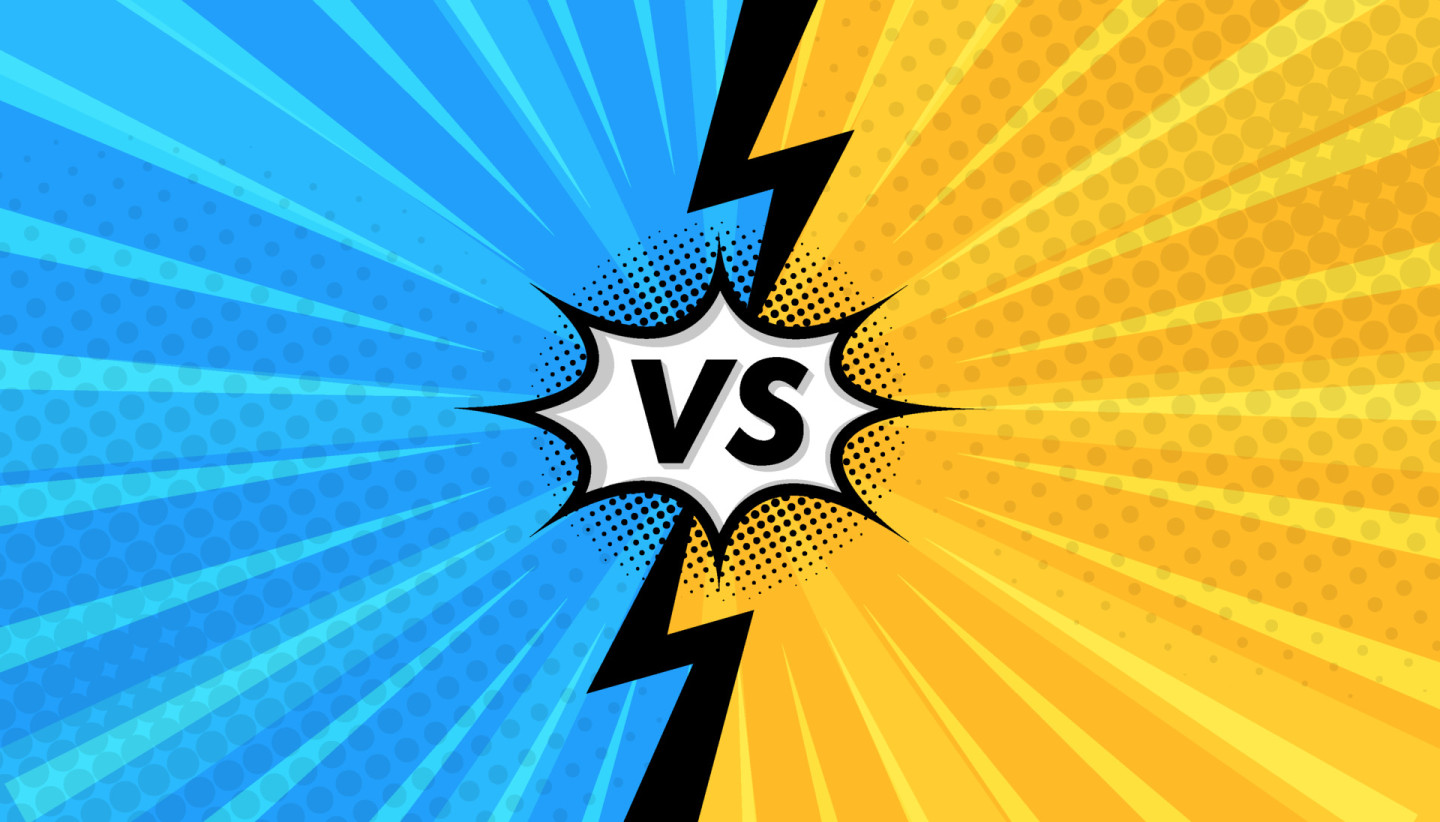Content Writing vs Copywriting
Understanding the Key Differences
Understanding the Key Differences
In the realm of digital marketing and communication, two main writing disciplines take center stage: copywriting and content writing. While they may sound similar, these approaches are often mistaken for each other. It is important to know that these writing strategies serve distinct purposes and have unique objectives. However, both are essential for a successful marketing strategy. Understanding the basics of content writing and copywriting is the first step in determining which will best fit your business needs.
Want to know more about it? Here's an overview of the differences between content writing and copywriting.
What is Content Writing?
Content writing focuses on crafting valuable, informative, and engaging content. It is used to build relationships and educate a specific audience. Content writers are here to provide useful information, so the readers can better understand a topic, solve a problem or make a decision. Additionally, writers use storytelling techniques in order to engage the audience and make the content relatable.
Content writing usually focuses on increasing website traffic, improving search engine rankings, building brand authority, and establishing thought leadership. It is seen as a long-term goal and can appear as:
-
Blog posts
-
E-Books
-
Articles
-
White papers
-
Social media posts
-
Other forms of long-form or short-form content.
What is Copywriting?
On the other hand, Copywriting is a persuasive writing strategy. Its purpose is to drive specific actions or conversions. Copywriters craft compelling and persuasive content to promote products, services, or brands. The primary goal of copywriting is to generate conversions. It can be used to make a purchase, sign up for a newsletter, or click on a link.
Copywriters often use emotional triggers, storytelling, and persuasive language to connect with the audience and influence their behavior. In order to do so, writers maintain consistency with the brand's voice, tone, and messaging. As opposed to content writing, copywriting must be short and catchy. Often, it involves crafting concise and impactful messages, such as:
-
Headlines
-
Slogans
-
Taglines
-
Email subject lines
-
Sales emails
-
Advertising scripts
-
Calls to action (CTAs)
-
PPC landing pages
-
PPC ads
-
Product pages.
The 5 key differences
In today’s digital landscape, it is often necessary to implement both strategies for a successful business. A catchy copywriting with valuable content will create a powerful marketing message tailored to your audience that will drive results and increase sales! Let's take a quick look at the key differences between content writing and copywriting.
1. Length
Because content writing focuses on educating or entertaining the readers, the copy requires a longer length than copywriting. Depending on the topic, content writers can craft texts from 500 to 2,500 words. On the other hand, copywriters are able to persuade the audience to take action by using just one or two sentences.
2. Purpose
Content writers are here to provide useful information, so the readers can better understand a topic. While in contrast, copywriters craft compelling and persuasive content to promote products, services, or brands. The primary goal of copywriting is to generate conversions, whether it's sales, leads, or other desired outcomes.
3. Use of emotions
While both copywriters and content writers aim to influence their audience, a copywriting strategy tends to be more emotionally evocative. The main goal of the copywriter is to create an emotional response, by encouraging taking immediate action. In just one or two sentences, copywriters can establish a powerful connection that motivates the audience to purchase a product or service.
4. Grammar
While grammar is important in both strategies, it is essential to maintain an error-free article. Typos and grammar mistakes can interrupt the reader. In general, content writing adheres to a specific style guide, to keep consistency throughout the website, especially when there is more than one writer. In contrast, copywriting uses catchy sentences. For example, online advertising might keep a specific amount of words to be included in a text ad. In order to do so, copywriters tend to shorten sentences, remove punctuations or erase unnecessary words.
5. SEO strategy
If it's relevant to a search query, any high-quality copy will rank high in the search results. Nevertheless, content writers may incorporate search engine optimization (SEO) techniques to improve visibility in search engine results pages. In other words, due to its length, content writing surpasses copywriting. Long forms of keywords and internal links, usually provide greater rewards.
The final word
Both writing styles play crucial roles in marketing strategies, and it's often beneficial to incorporate elements of both into your overall approach. At first, content writing helps to build trust with your audience, and establish your brand as a thought leader. Then, copywriting is here to increase conversions by driving sales.
From a business perspective, it is essential to understand the difference between both copywriting and content writing in order to use these two strategies effectively. From a landing page, a blog post, or a newsletter, it is fundamental to have a clear understanding of your primary objectives. This will allow you to pick up the right type of strategy to achieve your goals!
At The Words Lab, our team of content writers and copywriters is here for you! We take the time to get to know our clients, their products or services, as well as their audience. We'll help you find the right strategy tailored to your business needs. Want to discuss it? Contact us today!
In the realm of digital marketing and communication, two main writing disciplines take center stage: copywriting and content writing. While they may sound similar, these approaches are often mistaken for each other. It is important to know that these writing strategies serve distinct purposes and have unique objectives. However, both are essential for a successful marketing strategy. Understanding the basics of content writing and copywriting is the first step in determining which will best fit your business needs.
Want to know more about it? Here's an overview of the differences between content writing and copywriting.
What is Content Writing?
Content writing focuses on crafting valuable, informative, and engaging content. It is used to build relationships and educate a specific audience. Content writers are here to provide useful information, so the readers can better understand a topic, solve a problem or make a decision. Additionally, writers use storytelling techniques in order to engage the audience and make the content relatable.
Content writing usually focuses on increasing website traffic, improving search engine rankings, building brand authority, and establishing thought leadership. It is seen as a long-term goal and can appear as:
-
Blog posts
-
E-Books
-
Articles
-
White papers
-
Social media posts
-
Other forms of long-form or short-form content.
What is Copywriting?
On the other hand, Copywriting is a persuasive writing strategy. Its purpose is to drive specific actions or conversions. Copywriters craft compelling and persuasive content to promote products, services, or brands. The primary goal of copywriting is to generate conversions. It can be used to make a purchase, sign up for a newsletter, or click on a link.
Copywriters often use emotional triggers, storytelling, and persuasive language to connect with the audience and influence their behavior. In order to do so, writers maintain consistency with the brand's voice, tone, and messaging. As opposed to content writing, copywriting must be short and catchy. Often, it involves crafting concise and impactful messages, such as:
-
Headlines
-
Slogans
-
Taglines
-
Email subject lines
-
Sales emails
-
Advertising scripts
-
Calls to action (CTAs)
-
PPC landing pages
-
PPC ads
-
Product pages.
The 5 key differences
In today’s digital landscape, it is often necessary to implement both strategies for a successful business. A catchy copywriting with valuable content will create a powerful marketing message tailored to your audience that will drive results and increase sales! Let's take a quick look at the key differences between content writing and copywriting.
1. Length
Because content writing focuses on educating or entertaining the readers, the copy requires a longer length than copywriting. Depending on the topic, content writers can craft texts from 500 to 2,500 words. On the other hand, copywriters are able to persuade the audience to take action by using just one or two sentences.
2. Purpose
Content writers are here to provide useful information, so the readers can better understand a topic. While in contrast, copywriters craft compelling and persuasive content to promote products, services, or brands. The primary goal of copywriting is to generate conversions, whether it's sales, leads, or other desired outcomes.
3. Use of emotions
While both copywriters and content writers aim to influence their audience, a copywriting strategy tends to be more emotionally evocative. The main goal of the copywriter is to create an emotional response, by encouraging taking immediate action. In just one or two sentences, copywriters can establish a powerful connection that motivates the audience to purchase a product or service.
4. Grammar
While grammar is important in both strategies, it is essential to maintain an error-free article. Typos and grammar mistakes can interrupt the reader. In general, content writing adheres to a specific style guide, to keep consistency throughout the website, especially when there is more than one writer. In contrast, copywriting uses catchy sentences. For example, online advertising might keep a specific amount of words to be included in a text ad. In order to do so, copywriters tend to shorten sentences, remove punctuations or erase unnecessary words.
5. SEO strategy
If it's relevant to a search query, any high-quality copy will rank high in the search results. Nevertheless, content writers may incorporate search engine optimization (SEO) techniques to improve visibility in search engine results pages. In other words, due to its length, content writing surpasses copywriting. Long forms of keywords and internal links, usually provide greater rewards.
The final word
Both writing styles play crucial roles in marketing strategies, and it's often beneficial to incorporate elements of both into your overall approach. At first, content writing helps to build trust with your audience, and establish your brand as a thought leader. Then, copywriting is here to increase conversions by driving sales.
From a business perspective, it is essential to understand the difference between both copywriting and content writing in order to use these two strategies effectively. From a landing page, a blog post, or a newsletter, it is fundamental to have a clear understanding of your primary objectives. This will allow you to pick up the right type of strategy to achieve your goals!
At The Words Lab, our team of content writers and copywriters is here for you! We take the time to get to know our clients, their products or services, as well as their audience. We'll help you find the right strategy tailored to your business needs. Want to discuss it? Contact us today!


Recent Comments